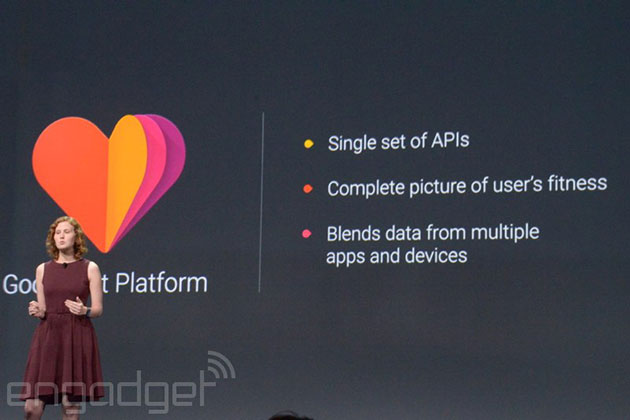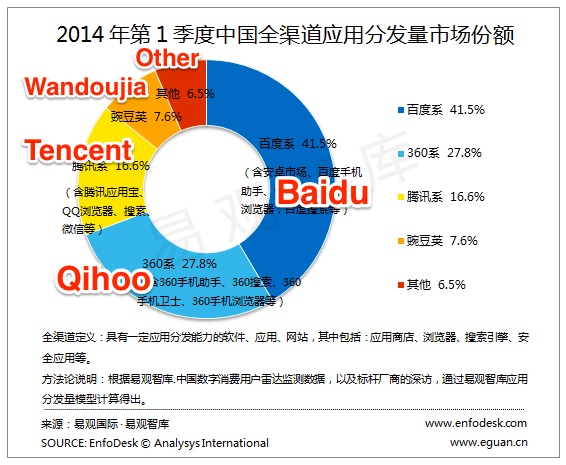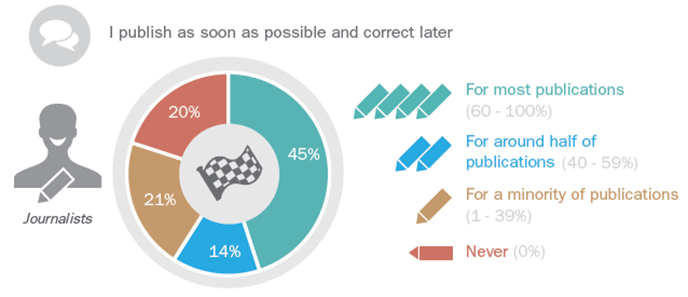Sections
Pick of the week
A bracing LinkedIn post replete with Terminator references by Jeff Graham calls upon readers to resist the siren lure of their smartphones and wean themselves off before it’s too late: “The dependency on smartphones has become so deep, it actually has a name: Nomophobia, which is defined as “the fear of being out of mobile phone contact.” Apparently, the addiction is so strong that most smartphone users don’t even use the washroom without one.”
As computers and software increasingly inhabit more of the cognitive niche on our behalf there’s a growing sense of disquiet from commentators like Nicholas Carr about where it all ends: “Anything that can be automated should be automated. If it’s possible to program a computer to do something a person can do, then the computer should do it. That way, the person will be “freed up” to do something “more valuable.” Completely absent from this view is any sense of what it actually means to be a human being.” The same idea was memorably explored in Kurt Vonnegut’s classic automation dystopia The Player Piano.

Smartphones/OEMs
- The unfulfilled story of Liquidmetal should serve as a cautionary tale for those speculating on what Apple might be looking to do with sapphire glass: “In reality, Liquidmetal has been too unique and too expensive to produce in such large quantities. It’s also difficult to work with.” Apple’s investment in this area may make sense just to address sapphire lens covers and watch screens.
- Jeff Bezos is increasingly assuming Steve Jobs’ capricious product dictator tradition: “I think that Amazon is a challenging place to work as a designer, because there’s only one product manager, that’s Jeff, and he’s not a design guy.” His response to Woot’s founder on why Amazon acquired them ought to go straight into his quotes file: “You’re the octopus that I’m having for breakfast”
Google/Android/Apps
- Pocketnow run through the main Android L release features in a 5 minute hands-on YouTube video:
- “It is a sufficiently advanced form of paper as to be indistinguishable from magic.” It seems that paper was the physical inspiration behind Google’s Material Design language for L starting from the question, What is Software made of?: “the team set about creating this metaphorical material, which is a little bit like magical paper. It’s flat, it floats slightly above the surface of the background, it tends to be white. There are consistent drop shadows, and a consistent light source illuminating them. Things tend to not just vanish when you move them, but slide away. They don’t shuffle around on their own, but only move when a user moves them.”
- More information is emerging about the extent of camera enhancements and fixes in Android L and TNW have put together a high level summary. The introduction of low-latency (aka “real time”) audio processing in L offers the prospect of leading edge studio-quality recording apps becoming available on Android in addition to iOS. And there are already tantalizing hints of a serious improvement in battery life with ArsTechnica reporting 36% more battery life.
- The Android One sub-$100 affordable smartphone initiative apparently involves MediaTek and not Qualcomm as the preferred SoC vendor. According to Digitimes: “Google has been in talks with MediaTek for the Android One in the past six months and has promised to offer its latest software and firmware of Android platform to the Taiwan-based IC design house for detailed development, indicated the sources.” The strategic importance of low cost Android is highlighted in this post from Benedict Evans showing how Android market share is strongest in lower income markets:

- Android IO developments show how it is increasingly Google’s world with OEMs just living in it. In one more object lesson in dominant platform power, it looks like manufacturers of Android Wear, Android TV or Android Auto products will not be able to modify the UI on products built for any of these verticals. Google’s message to developers and OEMs is clear – don’t mess up Android. Furthermore, Android Wear will be an Android only proposition. Still, the Engadget hands on review of Android Auto is pretty positive. It seems to be a well-polished proposition already suggesting work has already been going on a while to mature it. Google Fit too looks like a platform proposition that fitness manufacturers will need to comply with if they want to fully participate in the Android ecosystem. The APIs involved are already being rolled out to all Android platforms from 2.3 upwards in a significant update to Google Play Services v5.0.

- TNW’s best Android apps for June include Yo and Nudge. Nudge seems to play in a similar space to Google Fit by providing a cross-device platform that “allows you to sync your various health and fitness tracking apps and devices under one digital roof”. It currently supports multiple leading health app propositions like MapMyFitness, RunKeeper, Moves and Strava as well as multiple wearable device players including Jawbone and Fitbit.
- In a further display of strategic intent, QuickOffice will be deprecated as a standalone app and integrated into Google Docs.
- The Verge talk up Google’s Advanced Technology and Projects (ATAP) special operations group in which “ tiny teams pick ridiculously ambitious goals and then try to achieve them in two years — and achieve them at a real, meaningful scale.” Both Project Ara (modular smartphones) and Project Tango (3D sensing tablets) came out of this group.
Asia
- The Chinese Ministry of Industry and Information Technology (MIIT) awarded FDD licences to China Unicom and China Telecom but there’s a catch: “officially, the licences are awarded on the basis that both companies use them to trial FDD-TDD LTE integration in 16 cities around the country.” TDD remains the officially approved flavour of LTE for China and China Mobile is well ahead on that: “All three carriers, China Mobile, China Unicom and China Telecom, were granted TD-LTE licenses at the end of last year and China Mobile, which operates a 3G network based on TD-SCDMA has already launched LTE services”
- BusinessInsider provides a strong endorsement of the Cyanogen-flavoured OnePlus One smartphone in a positive review: “I’ve been using the One for a few weeks, and it has quickly become my favorite new phone of the year.”
- Quartz breakdown of China’s most popular apps shows Tencent have a decisive edge over Alibaba in mobile today:

- Both Alibaba and Tencent are continuing to invest heavily in tech startups in APAC in their ongoing struggle for supremacy. Tencent bought a large stake in Chinese Craigslist equivalent 58.com this week. Looking at the app distribution picture above, perhaps Alibaba will revive speculation about partnership with Qihoo.
- However Baidu remains the closest thing to Google in China and is the leading app store by volume over both Qihoo and Tencent:

- Uber launched in India in three major cities Delhi, Bangalore and Hyderabad to start with. Should be interesting to see how that works out.
- In South Korea, Samsung are no longer the number 1 employer in the eyes of young job seekers being overtaken by Korean Air after 10 years at the top: “A perception among young job-seekers that Samsung is a sweat shop, where you have to work harder and longer hours than in other companies for more money, has been strengthened.”
Cloud/Infrastructure
- Interesting post about the challenges faced by SoundCloud as they moved from a monolithic to microservice platform architecture built around Scala and Twitter’s Finagle technology.
- Atlassian are now providing Enterprise Jira and (coming soon) Confluence in a hosted Data Center with customer support and technical account management. Apparently: “about 25,000 companies and their 8.5 million employees use JIRA daily.”
Security
- The security-packed Blackphone is now shipping five months after being announced at MWC: “SGP Technologies, the Switzerland-based joint venture of Silent Circle and Geeksphone which created the Blackphone device, said there was an overwhelming demand for the phone.”

- ContentLoop outlines some of the potential new security and data compromise threats raised by wearables with Deloitte warning that “the explosive growth in wearable technology could lead to a security nightmare.”
Services
- Shutter offer an iOS camera app with unlimited cloud storage. The app seems nice too: “The good news is that Shutter is a very nice app. It has an attractive design, and a very useful photo viewer, with an elegant way of providing photo details such as shutter speed and ISO while browsing. The camera itself is fast but somewhat minimal in terms of options”
- Push notification may seem like a direct marketing dream but it turned into a bit of a nightmare at the BBC when a test message was broadcast on production rather than QA:

Big Data/Machine Learning
- In another sign of tech industry overreach, Facebook faced a major global backlash after divulging that they had conducted a global scale psychological experiment with over half a million of their users to help determine “whether exposure to emotions led people to change their own posting behaviors”. The results were published in the Proceedings of the National Academy of Sciences. At the heart of the disquiet is a lack of informed consent: “It is a matter of concern that the collection of data by Facebook may have involved practices that were not fully consistent with the principles of obtaining informed consent and allowing participants to opt out.” Facebook appears to see it as innovation in action. The whole sorry tale has broader application in respect of the limits and morality of A/B testing which is widely conducted by many internet companies without user awareness of what they are being served:

- Not content with Android Wear and Android Fit, Google are now lobbying for access to medical records to mine them for information because it will “save lives”. There is a case for open health data but security is a big issue. There is evidence to suggest people are more comfortable divulging personal health details to a virtual rather than human doctor.
- Heads-up on what’s next in Quantified Self: “Imagine if an app could flash up a warning as your body started to process that one unit of alcohol too many.” There isn’t too much exploration of the ethical or societal ramifications of proceeding down a route of ever more self quantification.
- Microsoft’s Cortana virtual assistant is 8-0 up in terms of successful World Cup match predictions: “Eight World Cup games have been played since Microsoft’s answer to Siri, Cortana, was given the ability to predict the outcome of football matches in an update – and it has accurately called the winner every time.”
Car Connectivity
- With Android Auto’s arrival, the car industry now faces the prospect of “Car Wars” between CarPlay and Auto with Mirrorlink and others presumably sidelined in due course:
Car Wars pic.twitter.com/X6v2ssNs1j
— Álex Barredo 📈 (@somospostpc) July 2, 2014
- As suggested by the intersection in this graphic, at least some pro-Android car manufacturers will hedge their bets and look to incorporate different standards rather than just hand the keys over to Google.
Wearables/InterentOfThings
- Fascinating profile of PCH who are setting themselves up to be the “AWS of hardware”, a company that aims to help Kickstarters progress the rough terrain between prototype and manufacture through experienced support, access to state of the art machinery and a network of factories in China. Liam Casey, PCH CEO is quoteworthy: “There is no ‘minimum viable product’ in hardware,” he says, referencing the trendy notion in software that you should launch the first “good-enough” version of your idea. “One screw can put you out of business.””
- The iWatch watch gets just one entry this week. Apparently a sweat monitor will be one of the 10 sensors on board.
- The LG G Watch running AndroidWear has a Snapdragon 400 inside. The New York Times reviewed it along with the Samsung Gear Live and concluded that aesthetically they “re-enforce all our old assumptions about the form, which is that you take your phone screen, make it small and stick it on your wrist. All I can think when I see them is: “Beam me up, Scotty!” And where’s the joy — or the desire — in that?”

- TechCrunch hands-on with latest Emotiv wireless neuro EEG headset is worth checking out for a real live demo of telepathy.
- Bluetooth enabled sunglasses with bone conduction technology for hands free operation out of China.
Miscellaneous
- Facebook was also in the news this week for voluntarily disclosing information about its employee diversity. Their breakdown merely serves to underline the gender challenge right across the tech sector with staff overwhelmingly male and more often than not white. Google’s partial answer to it somewhat inevitably involves coding their way out with Made With Code program aimed at getting more women into programming.

- There’s been an explosion in patents and patent litigation in the last 20 years and like others, the HBR is beginning to question the value of it all given overall the effect is to “reduce the profitability of innovation rather than to increase it … the value of patents in an increasing number of cases is merely to keep from getting sued by someone else with patents.”

- Delivering more software with less resources sounds like a corporate holy grail. InfoQ suggests it can be done with small experienced multidisciplinary teams given all the resources and support they need including access to customers and a willingness to experiment. Many startups operate that way but they don’t have to contend with layers of management and other tyre-kicking intermediaries.
- Agile journalism seems to be a thing now given that many journalists “publish as soon as possible and correct later” which might work well for web software but seems somewhat more worrying when applied to the world of publishing:

- Continuing this week’s automation theme, journalism is increasingly likely to be disrupted by automation anyway. Associated Press apparently “plans to use automation technology from a company called Automated Insights to produce stories about earnings reports”. GigaOM see that as something to be welcomed: “all it means is that as a professional journalist, you now have to make sure that you are better than a robot. If you aren’t, you should probably think about finding another line of work anyway.”
- Apparently there has “never been a better time to create a luxury startup”. Perhaps that is a reflection of growing inequality in society. Anyhow, in pure startup terms, luxury doesn’t really scale well as it relies upon (in some cases artificial) scarcity.
- Jacques Peretti’s The Men Who Made Us Spend was an interesting diatribe on planned obsolescence as a corporate strategy and something that consumers seem to have tacitly accepted.